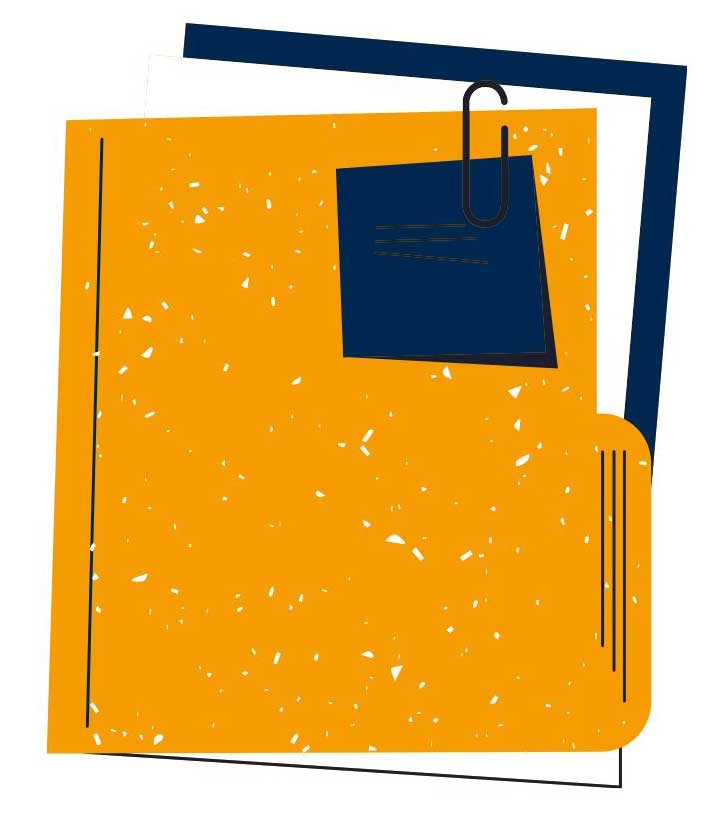
Working in Germany after graduation for EU students
EU students have the same opportunities as German students. They do not need a work permit in Germany but can freely choose where they want to live and work. If you are an EU student and would like to work in Germany, check out our tips for finding employment in Germany.
Working in Germany after graduation for non-EU students
For some non-EU countries, the same regulations as for EU countries apply, meaning they are exempted from the obligation to obtain a working visa Germany. These countries are Australia, Canada, Israel, Japan, New Zealand, Switzerland, USA and the Republic of Korea.
International students from all other non-EU/EEA countries need a residence permit while staying in Germany. So, if your student visa for Germany is no longer valid after your graduation and you have not yet found an employment, you canapply for a residence permit that allows you to stay in Germany during your job search. This permit is valid for 18 months.
Of course, the job can still be in a related field, in which you only use some of the knowledge from your studies. However, it is not possible to apply, for example, as a waiter or cashier if you have studied engineering. In cases of doubt about what is considered an employment suitable for your qualification, contact your local Foreigners Authority Office (“Ausländerbehörde” in German).
Another option for obtaining a work permit in Germany is self-employment. If you think you have a great business idea, you can get in contact with advisory services that help you set up your business. At the International School of Management, our Entrepreneurship Institute @ ISM can advise you on the necessary steps to become self-employed.
Applying for the temporary residence permit
You should apply for this residence permit as soon as you have proof that your studies are finished. To apply for the residence permit, you need to contact your local Foreigners Authority Office.
It is important that the Foreigners Authority Office receives your application before your residence permit for studying expires.

Need help with visa procedures?
If you need support with the visa procedures for Germany, you can check out VisaFlow. VisaFlow is a web app designed to ease the transition of international students to Germany. Their app provides detailed, step-by-step guidance throughout your entire relocation process, ensuring no deadlines are missed and helping students through the sometimes complex bureaucratic procedures involved.
Activate your free access with the code "ISM25" and start your smooth journey at platform.visaflow.app.

To receive a work permit in Germany, you must either have a residence permit or apply for a visa
Documents you need for the application
The documents you need for the application might vary, so make sure to check the website of your local Foreigners Authority Office’s website before your application. Some of the documents you might need are:
- proof that you have completed your studies
- passport
- application form
- proof of health insurance cover
- proof that you will be able to finance your job search
Can I work in Germany with a temporary residence permit?
Can I work in Germany after I return to my home country?
During the 18 months the temporary residence permit gives you, you can stay outside of Germany for up to six months. However, make sure not to exceed this time period. After six months, your residence permit expires automatically. In this case, you can apply for a job seeker visa Germany from your home country. However, with this visa you are faced with more restrictive rules. You only have six months to find a job suitable to your qualification. Additionally, you are not allowed to work during your job-search.

Job seeker visa Germany
How do I find a job in Germany after graduating?
Start early
Learn German
Speaking the German language can be a big help on your journey towards a work permit in Germany. Being able to speak (at least some) German is still expected for many positions, even in multinational companies. When studying at the German university International School of Management, German classes are either part of the curriculum (in the Bachelor’s programs) or can be taken as a pre-course at the start of the semester (in the Master’s programs).
Get practical experience
With an internship in the area you would like to work in, you get the necessary basics and the company you apply to sees that you are passionate about the field. At the International School of Management, you can even get additional practical insights during workshops and semester projects with our company partners.
Stay open-minded
Don’t just apply to big names. In Germany, there are also many successful small and medium sized companies, looking for qualified employees. If you have graduated in a STEM-related field, your chances of finding a job and obtaining a working visa Germany (or residence permit if you are already in the country) are particularly high.
Use your university’s career services
At ISM, for example, the Career Center offers various events like the “Ask a Recruiter” series, in which you can get information about different companies’ hiring processes as well as networking events, career counseling or help with applications and CVs.
Don’t just look in one place
How do I get a working visa Germany?

Working visa Germany with a job offer
You have studied at a German university and have continued your job search in the country
You need to contact your local Foreigners Authority Office and change your residence permit to a work permit. This will be granted for four years if you have an unlimited employment contract. If your work contract is shorter, the permit will only be issued for this time period. If you have worked in Germany for four years, you can apply for a settlement permit. With this permit, you can live and work in Germany indefinitely.
You live in another country and receive a job offer from a German company
To receive a working visa Germany, you need to apply for a work visa for qualified professionals at the Germany embassy or consulate of your home country. You can find a list of the documents you need for your visa application on the website of the local German embassy or consulate.
In both cases you can also apply for an EU Blue Card. The Blue Card gives you the opportunity to already obtain a settlement permit for permanent residence after 33 months in Germany. Also, it gives you more mobility inside the EU for travel or work purposes. The EU Blue Card is the work permit in Germany that offers you the most advantages.
To receive the EU Blue Card, you must earn at least € 58,400 a year. In sectors that are particularly in demand like mathematics, IT, natural sciences, engineering or human medicine, your income has to be at least € 45,552 a year.
Germany is an attractive location for students from various countries. Many Indian Students choose the country to study in Master’s programs like International Management or Finance. One of them is ISM alumnus Parth, who has studied International Logistics & Supply Chain Management and is now working at the German Stock Exchange in Frankfurt.
How it started vs. how it's going
Get started now and request more information

The first AACSB-accredited private German university of applied sciences







